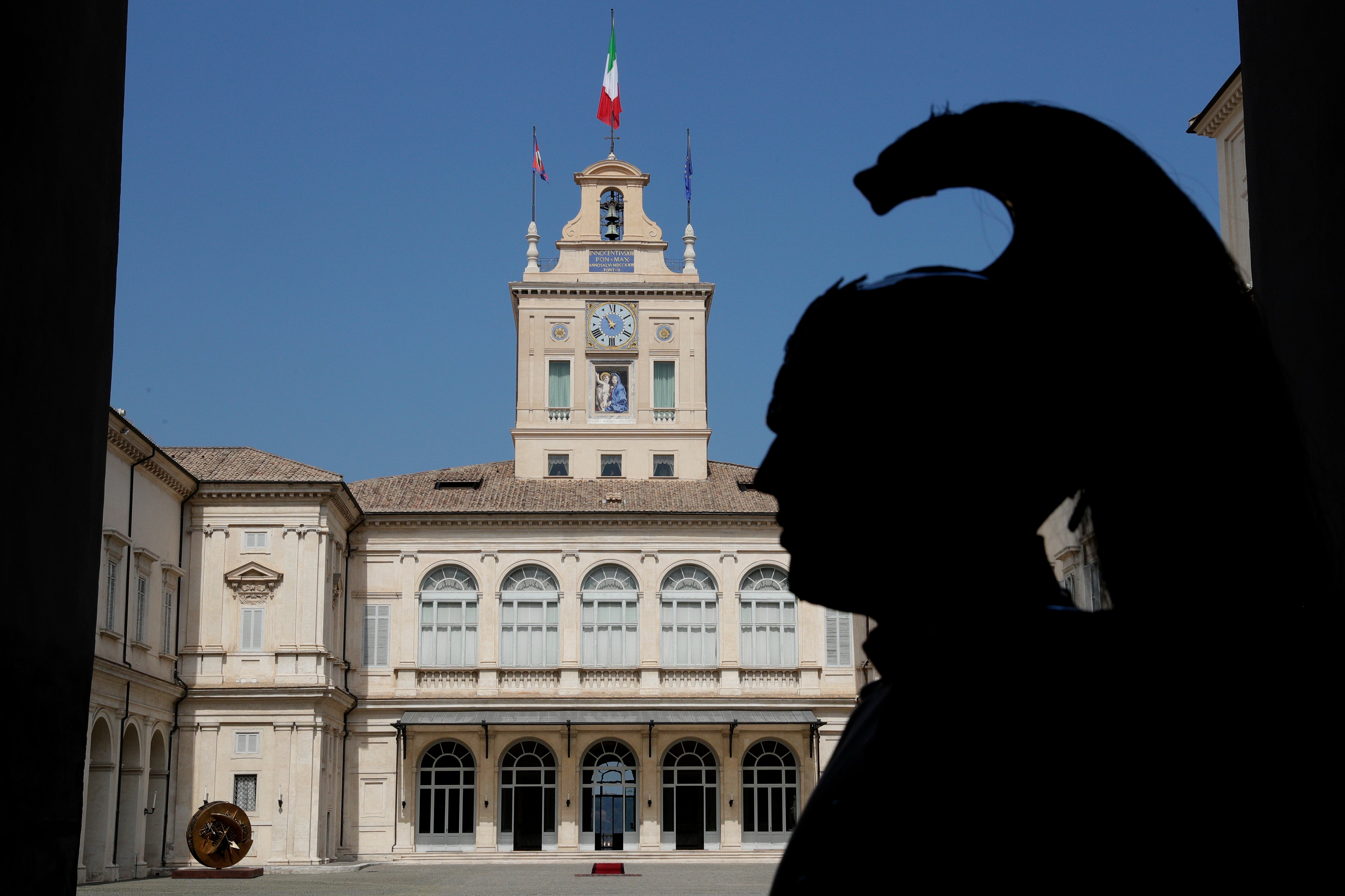Italy begins voting for next president with unclear slate
The first round of voting for Italy’s next president opens Monday without a clear slate of candidates following three-time ex-Premier Silvio Berlusconi’s reluctant withdrawal

Your support helps us to tell the story
From reproductive rights to climate change to Big Tech, The Independent is on the ground when the story is developing. Whether it's investigating the financials of Elon Musk's pro-Trump PAC or producing our latest documentary, 'The A Word', which shines a light on the American women fighting for reproductive rights, we know how important it is to parse out the facts from the messaging.
At such a critical moment in US history, we need reporters on the ground. Your donation allows us to keep sending journalists to speak to both sides of the story.
The Independent is trusted by Americans across the entire political spectrum. And unlike many other quality news outlets, we choose not to lock Americans out of our reporting and analysis with paywalls. We believe quality journalism should be available to everyone, paid for by those who can afford it.
Your support makes all the difference.The first round of voting for Italy’s next president opens Monday without a clear slate of candidates following three-time ex-Premier Silvio Berlusconi’s reluctant withdrawal, a situation that is likely to persist until Thursday.
Italy’s lawmakers and a smaller group of special regional representatives are set to vote for a successor to Sergio Mattarella as Italy’s head of state, a largely ceremonial post that still requires political acumen and constitutional knowledge to steer Italy through its frequent political crises.
Premier Mario Draghi has signaled his willingness to run for the post, but support from parties in the broad pandemic coalition are split over concerns that his move from head of government to head of state would trigger an early election.
The game opened wider after Berlusconi withdrew his controversial candidacy on Saturday, claiming he had enough votes to win but that the country could not afford political divisions. The 85-year-old Berlusconi has been undergoing tests at a hospital in Milan in recent days, his office confirmed Sunday.
Political parties held internal meetings over the weekend, but were keeping the names of possible candidates close to their vests. The vote for Italy’s 13th president also will set the stage for Italy's next political election, with the current legislative mandate expiring in 2023, as well as the perennial political tussle over new electoral laws.
It was looking increasingly likely that the first rounds of voting will take place with blank ballots or fantasy names while the behind-the-scenes wrangling continues. During the first three rounds, an absolute majority of is necessary to win. But beginning Thursday, a candidate can win with a simple majority.
So far, no party has officially named Draghi as a presidential candidate.
Berlusconi and his right-wing allies oppose his candidacy, largely out of concerns over triggering a new election while the populist 5-Star Movement is split. The Democratic Party would like to see Draghi in the job, and is reportedly working on a pact with other parties for a premier candidate to allow the current government to continue without a new election.
A former central banker and former head of the European Central Bank, Draghi was tapped as premier last year to help steer Italy through the pandemic. He has also helped Italy secure billions in EU funding to relaunch the economy in what was Europe’s first pandemic epicenter.
Draghi has said his role is largely complete, but some want him to stay on as head of government to ensure the funds are properly spent.